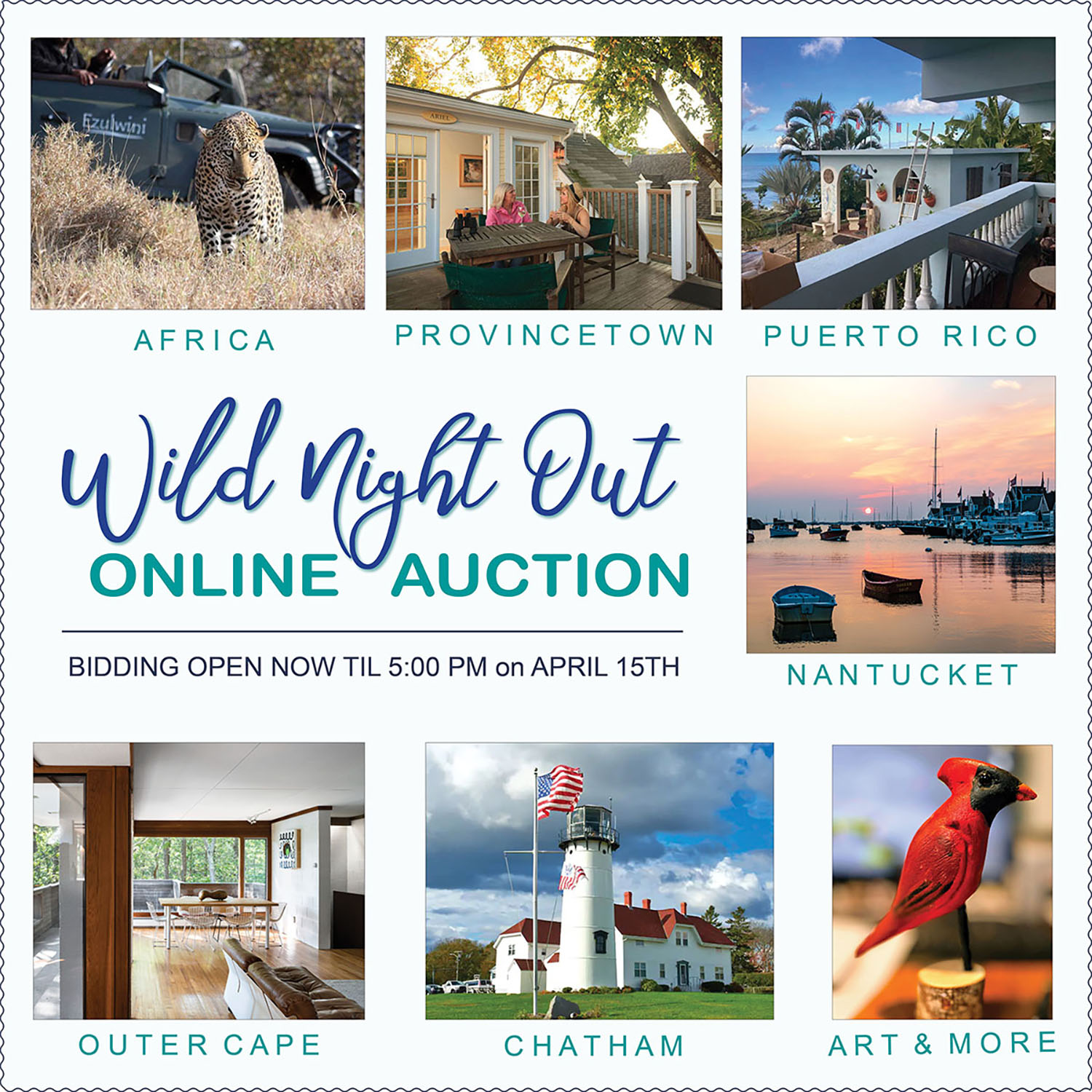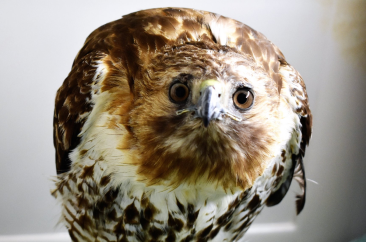
Humane Rodent Control Solutions
Controlling and deterring rodents requires a commitment if you want to see long-term effects. When managing rodents, poisons are never a good solution because of their potential secondary effects on children, pets and wildlife.
As well, poisons pose a hazard to our watersheds and environment. Furthermore, the use of poison bait is another attractant for rodents. Poison is not the answer!
The key to reducing rodent populations long-term requires Integrated Pest Management (IPM) utilizing deterrents, exclusion methods and eliminating rodent attraction sources.
Below are Wild Care’s recommendations for reducing or controlling rodent populations humanely and long-term.
Video by: Humane Wildlife Control, Association: https://www.humanewildlifecontrol.org/
Integrated Pest Management:
- Eliminate food sources that attract rodents. This includes outdoor pet food, cleaning up fruit and berries dropped by trees/shrubs, eliminate waste under bird feeding stations and/or take in bird feeding stations at night. Clean up dog feces promptly. Dog poop is an attractant.
- Practice good refuse management. Keep garbage receptacles and dumpsters closed at all times. Purchase rodent proof garbage bins and dumpsters.
- Utilize rodent proof compost bins. Do not throw food waste into your backyard.
- Trim or remove foliage so they are at least 2 feet away from the side of your home or dwelling, to prevent rodents from climbing, nesting and hiding in them.
- Seal up cracks, crevices and potential entry points into your home. Use 1/4 inch metal mesh (hardware cloth), not chicken wire, to block entry points.
- Remove brush piles from near your home or dwelling.
- Seal up cracks, crevices and potential entry points in your home – with course grade stainless steel wool (#3 or #4) or marine grade. Stuff wool in crevices tightly, then seal with spray foam insulation, heavy duty construction sealant or strong caulking. (Do not use expanding foam, or foam with rodent poison in it.)
- *Utilize electronic zappers or snap traps within your homes to control mice. (Never place these outside.)
- *Humane traps can be used to capture mice and rats in your home. Release rodents outside on your property. Use exclusion techniques to prevent re-entry. Once the house is sealed, THAT NIGHT, set live-catch humane traps and release any animals quickly by 8:00 AM. They will not survive long in humane traps. Release rodents outside on your property. MA state regulations require that all wildlife is released back onto your property. It is illegal to relocate wildlife to a new location and often lethal for the animal.
- Utilize rodent birth control methods below.
* Please note, when using snap traps, electrocution traps or humane trap-and-relocation on your property during the spring and summer months, you are potentially killing/releasing a nursing mother, and leaving babies behind. I recommend utilizing these methods during the fall and winter months to avoid creating orphans. Practice indoor exclusion during spring/summer to prevent rodents from getting in.
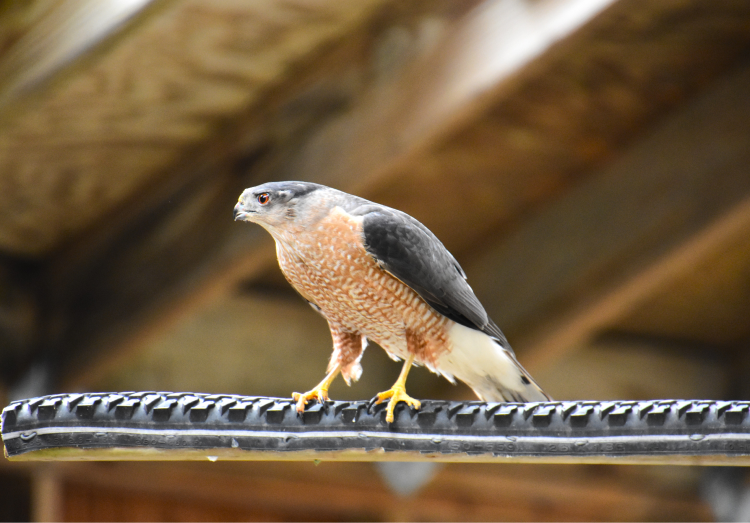
Devices and Products for Lethally Controlling Mice and Rats:
- Rats: Stuff dry ice pellets into burrow entrances/exists. Cover with soil to asphyxiate rats. (Please note, Bell Laboratory produces pellets approved for rodent control. “Rat Ice” is only available for rodent use in certain states.) https://www.belllabs.com/bell-labs/product/us/pest-control/rat-ice
- Rats and Mice: Put instant mashed potato flakes into re-labeled empty bait boxes. Mix with sunflower seed/peanut butter. (*Remember: Any time you put out a food source, you are attracting rodents.)
- RatX Product: Kills rats by dehydration
- A24 Good Nature Autotraps: Self-setting, self-baiting and self-clearing. For rats or mice.
- Smart Boxes by Anticimex
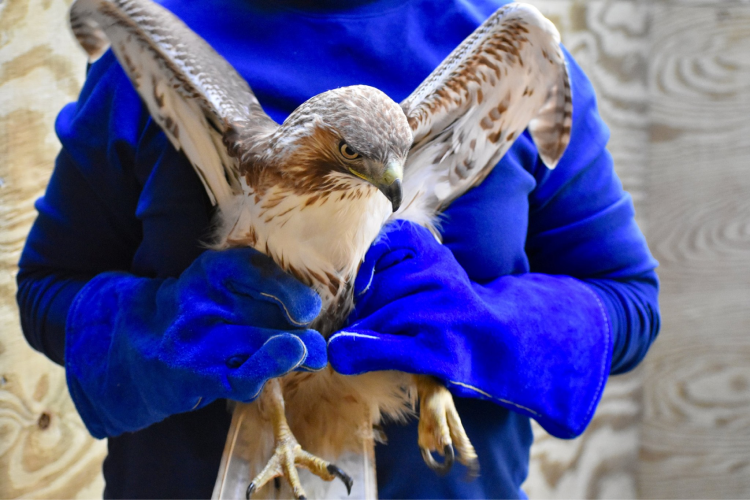
Rodent Birth Control and Non-Lethal Deterrents:
- Grid Guard: Acts as an electric fence for your vehicle. Non-lethal.
- Senestech Contrapest: Liquid rat birth control. Non-hormonal. Safe for pets and the environment. Effective long-term when combined with exclusion and lethal methods.
- Senestech Evolve Soft Bait: Soft bait birth control for rats. Non-hormonal. Safe for pets and the environment.
- Conntraceptol: Herbal birth control for mice.
- Natural Deterrents (Please note that mothballs should not be utilized for non-intended label use as they are carcinogenic, and harmful to watersheds.)
- Ultrasonic Rodent Deterrents for rats and mice
- Nixalite – Humane Rat and Mouse Control Products
- Other options from Raptors Are the Solution
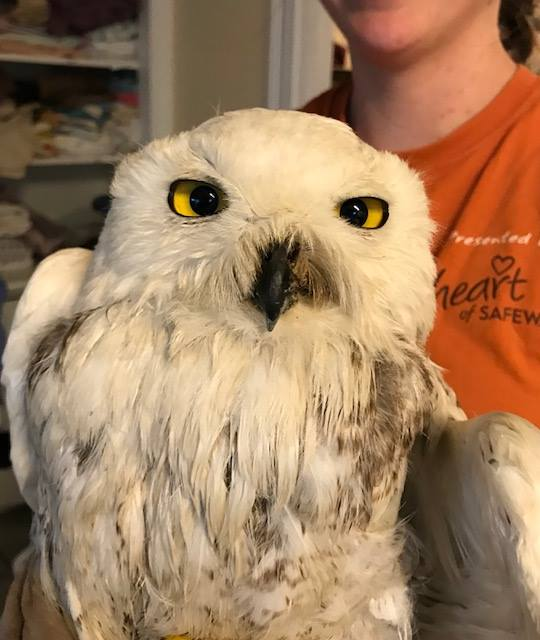
For questions, contact Stephanie Ellis, Executive Director, Wild Care, Inc. [email protected]
Please click here for printable version of this article.
All photos are by Kerry Reid. Snowy Owl by Stephanie Ellis. These birds were treated at Wild Care and survived rodenticide poisoning except for the Snowy Owl who succumbed to the poison.
Wild Night Out Online Auction
READY, SET, BID… We are so excited to announce that our Wild Night Out Online Auction is now live!
READ ALL NEWS
CALENDAR OF EVENTS
04 April, 2024
Wild Night Out Online Auction
EVENT DETAILS
05 April, 2024
Wild Night Out
EVENT DETAILS
28 February, 2024
Wildlife Winter/Spring Talk Series
EVENT DETAILS

DID YOU KNOW??
Wild Care has a state-of-the-art seabird therapy pool, which allows seabirds and waterfowl to exercise on running water. This will help our bird friends recover more quickly so they can get back to their watery habitats!

